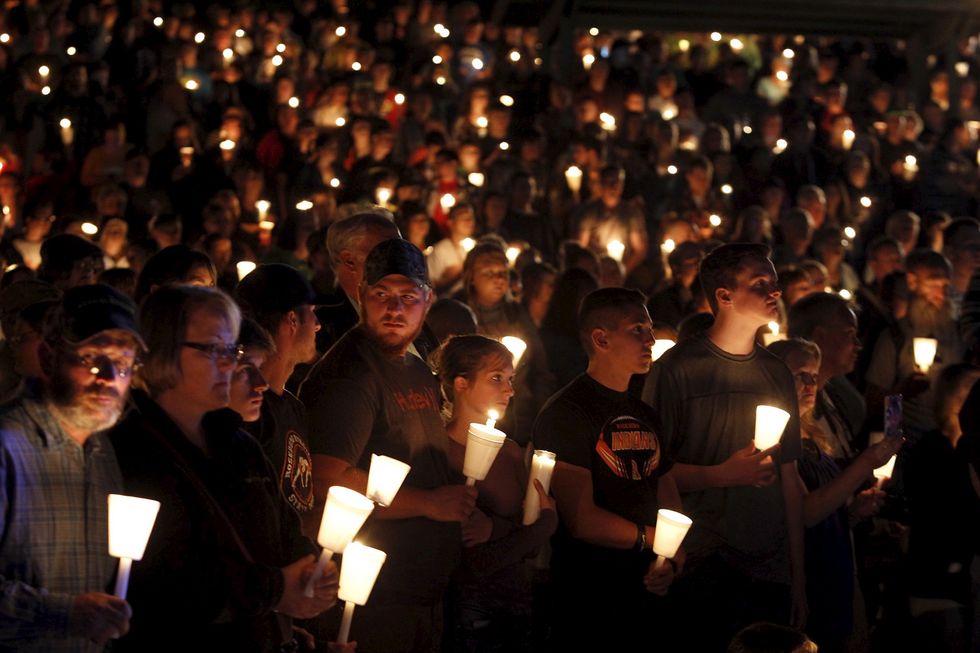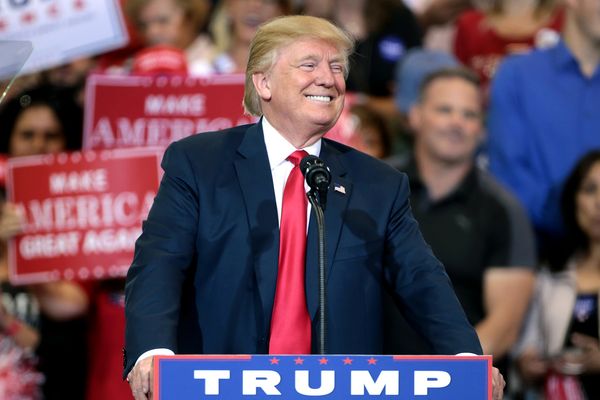I think that everyone can remember the multitude of safety drills that we had to practice in elementary school. A lot of them seemed pretty self-explanatory, from crouching under the desk if there was an earthquake, to lining up outside if there was a fire. But one that always gave me an uneasy feeling, even at eight-years-old, was a drill practiced in case someone walked into the school with a gun.
In elementary school they explained to us third-graders that it was a drill for “if a bad man walks in and wants to hurt us." We would stay underneath our desks and not go near the windows, while the teacher would turn off all the lights and lock all the doors. I’ll never forget feeling a wave of anxiety the first time we practiced such a drill; it’s a feeling you don’t get when preparing for an earthquake or fire.
In that same year, the Virginia Tech shooting occurred on April 16, 2007. But nothing could help an eight-year-old comprehend why someone would walk into a school and kill 32 people.
I’ll never forget the first time I felt the weight of such a tragedy in my heart; it was December 14th, 2012, when a man walked into a Newtown, Connecticut elementary school and killed 28 people, including 20 children. Those 20 children were younger than I was the first time I practiced a safety drill if such an incident occurred at my own school. I was 14-years-old when the Sandy Hook Elementary School shooting occurred, and I remember staring in horror at my TV screen when I came home from school on that Friday. I couldn’t comprehend it.
Then, every single mass shooting becomes a chapter in your own book. Aurora. Sandy Hook. Isla Vista. Charleston. San Bernardino. Pulse nightclub. And as of October 1st, 2017, the deadliest shooting in modern United States history, in Las Vegas.
Growing up with these mass shootings, it feels like each year of your life is defined by the next biggest tragedy. We all have clear memories of walking into the classroom the next day, with your teachers trying to explain what maybe they don’t even understand themselves. A moment of silence brutally interrupted by the sound of 2nd Amendment advocates wanting to protect their guns. Speeches promising change, with “thoughts and prayers,” and no follow-up. Beautiful, bright futures turned into memories.
I’m aware that mass shootings have occurred before my own lifetime; but it’s ingrained even in my hometown of Stockton, California, where in 1989, a man walked into Cleveland elementary school and killed five children, before turning the gun on himself. Even way back then, Time magazine stated something too familiar now in regards to the incident: “The easy availability of weapons like this, which have no purpose other than killing human beings, can all too readily turn the delusions of sick gunmen into tragic nightmares.”
We have relived this nightmare again and again. Headlines can be copied and pasted at this point. In 2016, rising star Christina Grimmie was killed by a gunman at one of her own shows in Orlando, and the following night in the same city, another gunman walked into Pulse nightclub and killed 49 people.
As millennials, our worldview has being shaped by mass shootings, as familiar as a childhood friend. It’s one of the most common themes in our lives, a relationship we never asked to have. Yet, we never become desensitized to them. It stings every single time it comes on the news, sometimes before you could recover after hearing about the last one. After a certain point, when you realize no place is sacred, you begin to fear it happening to you or your loved ones. Movie theaters, churches, schools, night clubs, music festivals —you fear that one day you’ll open up Twitter and see that someone you know has fallen victim to another “deadliest mass shooting in modern United States history.” Some of us have lived through three of these “deadliest mass shootings,” and our lives are becoming defined by them.
The U.S has some five percent of the world’s population, and yet it sees about 31 percent of public mass shootings. We keep looking for something to blame, including rock music, the internet, video games, Muslims, and people of color. But as soon as guns are brought into the conversation, it’s suddenly “don’t talk about politics” or “now is not the time.” Politicians argue over something that has primarily affected people our age, so maybe it’s time for the youth of this country to speak up; because unless we talk “politics” and try to effect change ourselves, the trend will never stop.
We can argue over the internet about 2nd Amendment rights and statistics, but as the generation that grew up with mass shootings, our own loved ones' lives are at stake. If that isn’t motivation to try and change something, then I don’t know what is.



















